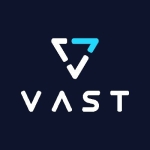What is most valuable?
Performance is the number-one most valuable feature, for sure. Flexibility and the multi-tenancy are also valuable.
The compression we needed, the rates we get, are inline with the performance, which is the reason we bought it; we have a lot of applications that use it. The compression and the dedupe stays in storage but on our other products, we'd lose performance because of that. On the All Flash FAS, we don't have any performance issues at all, so it's a big differentiator for us.
How has it helped my organization?
It provides financial benefits, because we don't have to spend as much on storage, because of the dedup and the compression and the performance it gives us. We don't have to buy anything else because of it.
What needs improvement?
There’s one thing that would make it easier to work with. There are differences between using the OnCommand: the GUI vs command line. There are still differences. There are things you can do from the command line that you can't do from the GUI. If they could make the GUI do everything that the command line does, that would be the best. That would earn it a perfect rating, for sure.
There are certain configurations/settings on cDOT that you can only make by using the CLI. My point for room for improvement was that, if they could make all the configurations/settings available in the GUI, then you would be able to pick one or the other for managing the cluster. Today, you either have to only use CLI or a mix of GUI/CLI.
What do I think about the stability of the solution?
We've had no stability issues. We've never had a problem. We've only been using it for about six months, but we haven't had a single issue of any kind. We're happy with it.
What do I think about the scalability of the solution?
We've added on shelves to it. That's one of the reasons we bought it too. We bought it for a certain set of applications and we've already expanded that now; used it for other things too. That's why I bought more storage on it. The flexibility we have, all the connections it has, it's helped us without having to buy either more storage systems or other products. We've just been able to grow what we have.
Which solution did I use previously and why did I switch?
We've previously had several other vendors. We used Hitachi. We used their HNAS product. We had Celerra from EMC. We've had a couple of other older vendors that aren't even around anymore.
We switched from HNAS because of the performance, both in application and backup performance. It was not nearly what it needs to be. Their storage pools and the way we could grow the HNAS environment was nothing compared to what the NetApp does. All of those things together made that an easy switch.
What was our ROI?
It's definitely saved us in storage costs. It's saved us in reliability, in downtime. We’ve had downtime with our HNAS, a couple times. That was the factor that got rid of it in the end. We invested in that product, and it was a pretty important feature of some of the applications that used it. We kept going with it and staying with it because we invested in it. But we had too many outages, too many problems with it.
In the end, we decided that it was not worth it, financially, to keep it. We got rid of it, and invested in NetApp, and all those reliability and performance issues went away. It's been 100% since day one.
Which other solutions did I evaluate?
We've had other vendors, and we've used their solutions. The performance hasn't been what it is on NetApp or the compression dedup rate hasn't been what it is on NetApp; with those other vendors, we get one of the two. We get both of those with NetApp; better performance, better compression, all of those things without sacrificing performance.
What other advice do I have?
Look at NetApp first. The flexibility they offer, the performance, and all the features they have. I can't think of anything that we can't do with that product. That's where we go to first now. We have a lot of other products. We have a lot of other storage vendors: Hitachi, IBM, EMC. We've had other NetApp FAS products, not just the All Flash one. We still have other NetApp FAS products.
Since we've had the All Flash FAS, because of its reliability and everything that goes with it, it’s the first thing that the application people ask for. When we talk to them about needing more storage, they always ask for NetApp first. It's kind of the standard now, which is fine by me because I like it.
It's reliable; it's fast; it does everything that we need it to do; it's relatively easy to work with.
Disclosure: My company does not have a business relationship with this vendor other than being a customer.











